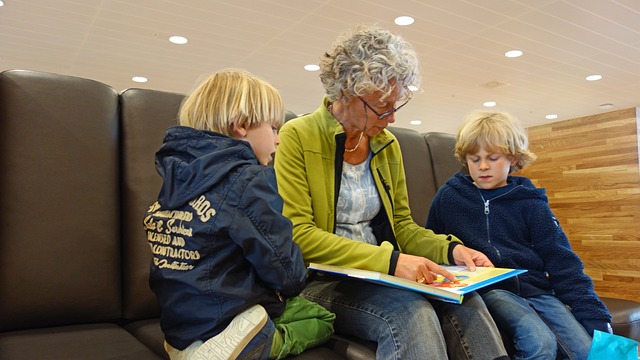As children, play is an integral part of our lives – an activity that comes naturally, seemingly without purpose. However, the significance of play in fostering the healthy development of a child cannot be understated. Play is not just a frivolous pastime; it is a fundamental aspect of a child’s growth and learning process. From promoting physical well-being to nurturing cognitive, social, and emotional skills, playtime is a gateway to better developmental outcomes.
In this blog post, we will delve into the importance of play in child development and explore how Wildflowers Early Learning, an innovative education centre, utilises play to help children develop holistically.
The Importance of Play in Fostering Healthy Development of a Child
Play is a powerful and intrinsic aspect of childhood that goes beyond mere amusement and fun. It is a fundamental activity through which children explore, discover, and make sense of the world around them. Play, in all its forms, plays a pivotal role in fostering the healthy development of a child, influencing their physical, cognitive, social, and emotional growth. As parents, educators, and society at large, understanding and promoting the significance of play is crucial for nurturing well-rounded, confident, and thriving individuals.
1. Physical Development
Physical play, such as running, climbing, jumping, and engaging in sports, is essential for a child’s physical development. Through these activities, children enhance their gross and fine motor skills, improve balance, coordination, and strength. Active play also contributes to the development of healthy habits and a strong foundation for a physically active lifestyle later in life, reducing the risk of obesity and other health issues.
2. Cognitive Development
Play is the gateway to cognitive growth in children. It stimulates their imagination and creativity, allowing them to experiment, solve problems, and make decisions in a safe and unstructured environment. From building with blocks to engaging in pretend play, children develop essential cognitive abilities such as spatial awareness, logical thinking, and symbolic representation. Play-based learning enhances memory retention, attention span, and the ability to think critically, preparing children for academic success and lifelong learning.
3. Social Development
Play provides children with invaluable opportunities to interact and communicate with their peers. Whether it’s playing together in a sandbox, role-playing, or engaging in cooperative games, social play enables children to develop vital social skills. They learn to take turns, share, negotiate, and resolve conflicts, building the foundations of empathy, emotional intelligence, and positive relationships. Social play fosters a sense of belonging and community, promoting a child’s social integration and self-esteem.
4. Emotional Development
Play serves as a natural outlet for children to express their emotions and feelings. It allows them to process and understand complex emotions, such as fear, happiness, and frustration, in a supportive environment. Whether it’s engaging in dramatic play or creating art, play enables children to communicate and regulate their emotions effectively. Moreover, play helps to reduce stress and anxiety, providing a space for emotional release and relaxation.
5. Imagination and Creativity
Unstructured play is the breeding ground for imagination and creativity. When children engage in open-ended play, they are encouraged to think outside the box, invent new scenarios, and explore limitless possibilities. This creativity extends beyond playtime, impacting problem-solving skills and innovative thinking in various aspects of a child’s life.
How Play Helps to Better Developmental Outcomes
Numerous studies and research have underscored the link between play and positive developmental outcomes. When children engage in unstructured play, their brains are stimulated, and neural connections are strengthened. This, in turn, enhances their capacity for learning and adaptability to new situations.
Play fosters creativity, imagination, and the ability to think outside the box. Furthermore, children who engage in cooperative play learn valuable social skills such as sharing, empathy, and teamwork. By navigating the dynamics of play, children develop resilience, perseverance, and a growth mindset, which are all essential qualities for success in later life. Therefore, play is not only enjoyable but also instrumental in shaping a child’s mental, emotional, and social growth.
How Wildflowers Early Learning Helps Children Develop Holistically Using Play
At Wildflowers Early Learning, the transformative power of play is at the core of their educational approach. Recognizing the importance of child-led learning, the center provides an enriching environment that fosters children’s curiosity, imagination, and self-discovery. Through open-ended activities and hands-on experiences, children are encouraged to explore and engage with their surroundings freely. The educators at Wildflowers nurture a child’s natural inquisitiveness, offering guidance and support without stifling their creativity.
In the play-based curriculum, children are encouraged to interact and collaborate with their peers, honing their communication and social skills. Play scenarios also present opportunities for children to understand emotions and practice empathy, as they take on different roles and perspectives in their games. Whether it’s building with blocks, creating art, or engaging in pretend play, Wildflowers Early Learning provides a diverse range of play experiences to cater to each child’s interests and developmental needs.
Conclusion
In conclusion, play is far from a trivial activity in the life of a child; it is a fundamental pillar of healthy development. Through play, children not only build physical and cognitive skills but also cultivate social and emotional intelligence. The importance of play cannot be overstated, and educational centres like Wildflowers Early Learning recognize its potential in nurturing well-rounded, confident, and happy individuals. By embracing play-based learning, Wildflowers creates an environment where children can thrive, learn, and grow holistically, setting a strong foundation for a promising future. As parents, educators, and caregivers, we must continue to prioritize play in a child’s life to ensure optimal development and well-being.







